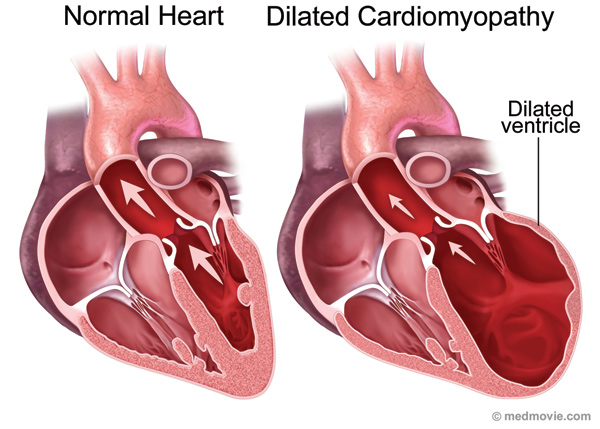Alcoholic Cardiomyopathy (By Anna Kopel)
Cardiomyopathy, also known as heart muscle disease, is a condition that weakens and enlarges the heart muscles. Dilated cardiomyopathy primarily affects the left ventricle (the main pumping chamber) of the heart by causing it to become enlarged (dilated), which reduces the heart’s ability to pump blood effectively throughout the body. In alcoholic cardiomyopathy, excessive alcohol consumption is what causes the heart muscle to weaken.
Although alcoholic cardiomyopathy is difficult to diagnose because most of the symptoms are undetectable until the disease has progressed to the advanced stages, some of the most common indications include swelling of the hands, feet, and legs, loss of appetite, difficulty breathing while lying down, increased fatigue and decreased alertness, coughing that contains mucus, an irregular or rapid pulse, and urination problems. Treatment for alcoholic cardiomyopathy typically includes lifestyle changes, including complete abstinence from alcohol, following a diet that is low in sodium, fat, and cholesterol, and restricting fluid intake. Medications that remove excess water from the body and encourage the heart to pump more effectively might also be used. Such treatments – especially when implemented early on – have the potential to prevent further deterioration of the heart, and if complete abstinence from alcohol is maintained, the cardiomyopathy can even sometimes be reversed completely.
It is estimated that up to 30% of all dilated cardiomyopathy cases are due to the long-term abuse of alcohol. Alcoholic cardiomyopathy is most common in men between the ages of 35 and 55, but it can develop in anyone who drinks too much alcohol. For most cardiomyopathies without a known cause, the overall outcome is very poor, with a 5-year survival rate of only 50%. However, when the cardiomyopathy is known to be caused by alcohol and lifestyle changes are implemented early on in the disease (particularly, the continued abstinence from alcohol) mortality rates are known to decrease.

References:
http://www.freemd.com/alcoholic-cardiomyopathy/overview.htm
http://texasheart.org/HIC/Topics/Cond/dilated.cfm
http://eurheartj.oxfordjournals.org/content/17/2/251.short
http://www.clevelandclinicmeded.com/medicalpubs/diseasemanagement/cardiology/dilated-restrictive-cardiomyopathy/
http://www.beltina.org/health-dictionary/cardiomyopathy-types-hypertrophic-dilated-ischemic-takotsubo-peripartum-symptoms-treatment-types.html
Comments (0)
You don't have permission to comment on this page.